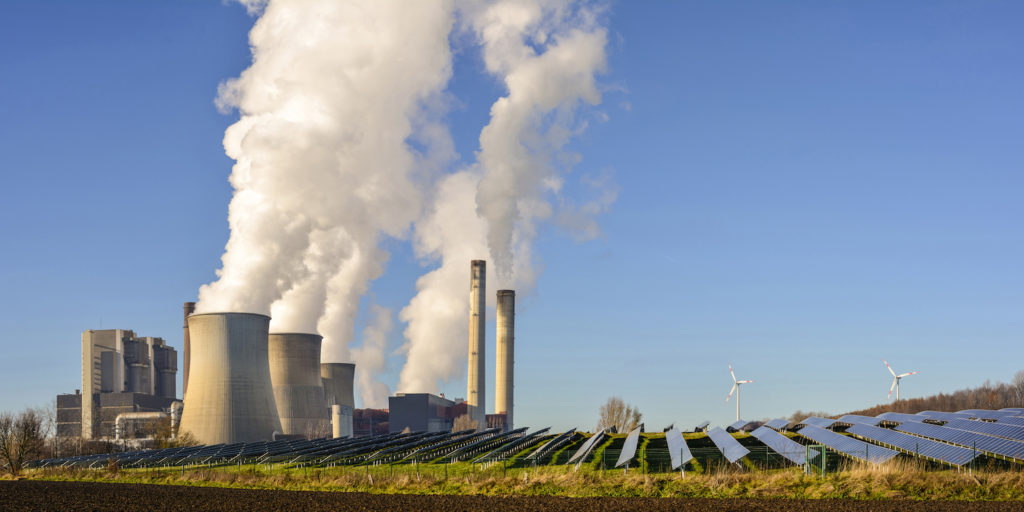The hotly contested part of the Morrison government’s plan to deliver “affordable, reliable 24/7 power“ – the Underwriting New Generation Investment Program – is said to require new or amended legislation to proceed, if it wants to avoid being challenged in court.
According to The Australia Institute (TAI), legal advice received from Fiona McLeod SC and Lindy Barrett last week finds that Federal Energy Minister Angus Taylor does not have constitutional authority over electricity nor the authority to fund projects under the program, as currently proposed.
The only way for the program to secure funds would be via the Clean Energy Finance Corporation (CEFC), which restricts energy funding to energy efficiency, renewable energy or low-emissions technologies; excluding coal and gas projects, the TAI says.
“This legal advice is very clear, the Government’s hasty, poorly-designed program to invest in new gas and coal power stations cannot proceed without legislative intervention by Parliament,” said Richie Merzian, Climate & Energy Program Director at the Australia Institute.
“Energy Minister Angus Taylor is in such a rush to funnel taxpayer funds to new coal fired power stations before the election, he seems to have overlooked that he has no constitutional authority to do so.”
The program has received strong interest with 66 submissions for 29 GW of power generation. Ten of those involve coal generation, despite mounting evidence that wind and solar supported by batteries and pumped hydro are the lowest cost new generation and that new coal is entirely uneconomic.
Analyzing the cost to generate electricity from new power plants in Australia in a report released late last year, the Australian Energy Market Operator (AEMO) and the national science agency CSIRO found solar and wind technologies to be lowest cost.
On top of that, dirty fossil fuel generation proving to be increasingly unreliable, with faults at coal-fired power plants directly responsible for recent blackouts across Victoria and South Australia.
Only in the last 24 hours, big coal clunkers have tripped two times. A big breakdown occurred at Queensland’s Calide B black coal plant, five minutes prior to another breakdown at New South Wales’ Eraring coal plant, midday during high demand.
Another big coal breakdown at QLD's Callide B black coal plant. 5 minutes prior to another breakdown at NSW Eraring coal plant. #gasandcoal #auspol #nswpol pic.twitter.com/i0ym32wFZk
— Australia Institute (@TheAusInstitute) February 19, 2019
Noting that almost every coal power station in the country was built with government and taxpayer support, Merzian says it is ironic that the only way for the program to proceed is through investing in renewables through the CEFC.
“This is another blow to the Federal Government, that their signature program to fund electricity is destined for the shelf – along with the rest of the Government’s energy policies.“
The legal opinion comes off the back of shelving another of the government’s landmark energy policies – the “big stick“ energy legislation – which came as the Greens and Labor attached an amendment to the bill blocking the use of public money to fund new coal-fired power plants.
https://twitter.com/TheAusInstitute/status/1097756114073018368
This content is protected by copyright and may not be reused. If you want to cooperate with us and would like to reuse some of our content, please contact: editors@pv-magazine.com.









By submitting this form you agree to pv magazine using your data for the purposes of publishing your comment.
Your personal data will only be disclosed or otherwise transmitted to third parties for the purposes of spam filtering or if this is necessary for technical maintenance of the website. Any other transfer to third parties will not take place unless this is justified on the basis of applicable data protection regulations or if pv magazine is legally obliged to do so.
You may revoke this consent at any time with effect for the future, in which case your personal data will be deleted immediately. Otherwise, your data will be deleted if pv magazine has processed your request or the purpose of data storage is fulfilled.
Further information on data privacy can be found in our Data Protection Policy.